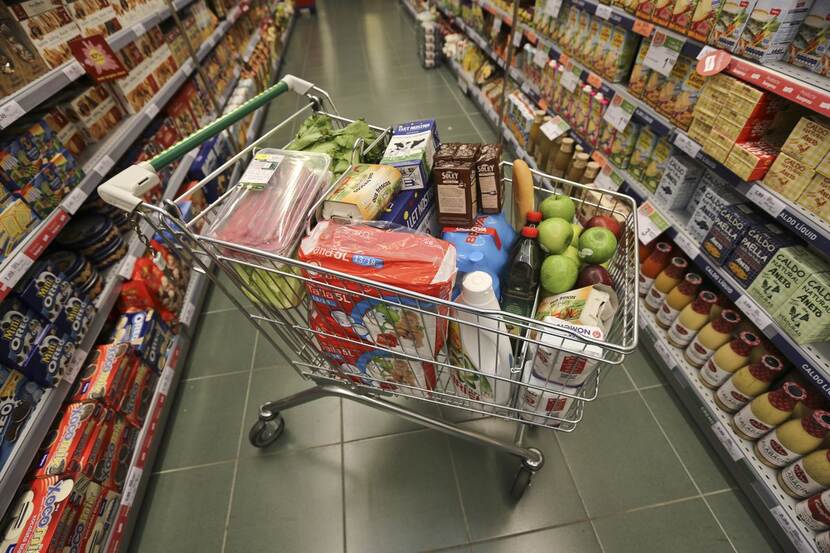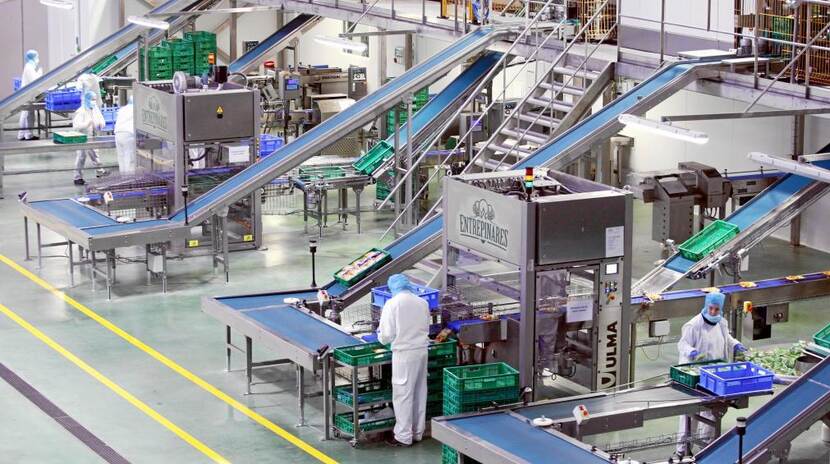Spain: Impact and future of COVID-19 crisis in food & beverage sector
Consumers have defined their priority for food safety and supply, and the sector has responded by gaining their trust. The online channel, health, the environment, values-based brands and proximity "stores" have become key factors in consumer decisions. The price factor will determine the greater or lesser potential of these trends in consumer behavior over the coming years.

"The COVID-19 crisis in the food and beverage sector: impact and future”
Experts from the IESE business school have carried out a study gathering the opinions of business leaders from 185 companies related to all stakeholders in the value chain. The pandemic context and the pre-existing global challenges have confronted the sector with the need to have a clear vision of the future of the business and a strategy to achieve it, both inspired by a clear corporate purpose.

The authors first analyze the evolution of consumer behavior, addressing aspects such as purchasing criteria, shopping channel preferences and leisure habits.
The drastic fall in activity that took place in the Spanish economy during the first half of 2020 affected the food and beverage sector in different ways. Another chapter focuses on the specific impact of the pandemic on companies in the sector, analyzing its effect on foreign trade, investment, employment and wages. The study also reflects the vision of the companies' managers about the future, analyzing how they expect the sector to evolve after the strong shock caused by the pandemic.
The food and beverage consumer
Regarding the expected changes in consumer habits because of COVID-19, food safety and supply are major new concerns, as well as the good performance of the sector and the confidence generated in the consumer's assessment. This is observed both in the fact that the consumer seems to prefer national brands over imported ones and in the fact that the first reaction of food stockpiling and storage has not been constant throughout the long period of pandemic, but was concentrated in an initial moment and is not observed as a persistent change over time. The effective response given by the sector in the most difficult weeks of this crisis, reassuring the population, has contributed to this.

On the other hand, some pre-existing trends have been consolidated in the current context. For example, at the channel level, the pandemic has given a major boost to online shopping, and its relative weight as a channel is expected to continue to grow, albeit with a dynamism that is difficult to foresee. Another trend that already existed and is consolidating is the preference of consumers for brands, both manufacturers and distribution chains, in which they recognize a clear commitment to the community in which they operate; this trend continues to be a priority in consumer behavior.
Consumers appreciate values-based brands, validating the strategies that many companies have been developing in this regard in recent years. Likewise, health and environmental references are maintained in purchasing decisions. And, in relation to these, a trend can be observed, perhaps modest in previous stages but which could become stronger in current consumer behavior: direct online sales from the primary sector to the consumer.
These trends linked to health and the environment or direct consumption of products without intermediaries are maintained, but are also qualified by the price factor, another clear vector and a high priority for the post-COVID-19 consumer. In this sense, it can be concluded that values, health and the environment are highly appreciated by the consumer, but only if they are maintained at reasonable or low prices. It is in relation to the price factor that the classic dichotomy about the path and growth that private label brands have or will have versus manufacturer brands can also be raised. Here it is worth noting an interesting change that has arisen because of the pandemic: the greater weight of local stores and consumer habits of shopping in these types of stores, where, on the other hand, there is not so much private label assortment.

Undoubtedly, the great source of concern in the food and beverage sector is the hospitality sector, which has been affected by the pandemic in a dramatic way and, therefore, causing a strong negative impact on beverage and some food manufacturers. Among the respondents, there are many uncertainties about the possibility of consumers resuming their leisure and eating out habits in a very active way or at the same pre-COVID-19 levels, mainly for economic reasons.
Sales
The food and beverage sector has been very unevenly affected by the pandemic. The drastic reduction in tourism, coupled with restrictions and bans on the activity of bars and restaurants, has seriously affected this sub-sector and the companies specialized in supplying them.
The data from the study reveal these strong differences. In terms of turnover, no less than 50% of the companies surveyed reported significant drops in sales (i.e., over 5%) in the local market, with 25% of them suffering declines of over 20%. At the other extreme, 26% of the companies reported significant increases in their turnover in Spain. Finally, 20% reported no appreciable variations in their sales.
In the retail segment, during the lockdown, traditional stores have gained share, from 13.3% in 2019 to 15.2% in 2020. Over the course of the pandemic, the hypermarket had reduced its share from 13.2% in 2019 to 12.2% in 2020, and the supermarket had gained one point, from 48% to 49%, with regional chains gaining the most weight.

The pandemic has also brought the often-announced, but only now materialized, "take-off" of the online channel, which has increased from 1.6% to 2.4%.
The hotel and catering industry is clearly the subsector most affected by the pandemic, while the primary sector maintains an appreciable robustness with respect to the economic cycle and the current recession.
Foreign trade
The COVID-19 crisis has also had an uneven impact. In the case of exports, 45% of the companies with international sales report significant drops in exports and around 23% report increases.
As for imports, 41% of the companies, which regularly import inputs and products, report a significant drop in their purchases. Only 14% of them report an increase in foreign purchases.
In this sense, a lesson leant, associated with the recent crisis, has to do with the importance for companies in the primary and industrial segments to have diversified marketing. This will avoid being dragged down by a crisis such as the one experienced by the hospitality sector, which led to the closure of almost 1,800 of its suppliers during 2020.
Investments
The report also studies the changes and impact of COVID-19 on investment decisions, with the main conclusion being an increase in investments and advances in the field of digital transformation, with investments in product innovation less important, and, lastly, investments in capital goods and human resources training.

The future ahead
With regard to the questions related to the future of the sector, the main conclusions are the widespread expectation that corporate M&A activity will increase, leading to greater concentration within the sector. The implications of this process can only be assessed over time, bearing in mind that this is a sector in which, in terms of industry, it does not have the number of large-scale benchmark companies that other countries around us do. The recent crisis has highlighted the importance of business size, not only to withstand the impact of this type of crisis, but also because of the capacity of large companies to promote initiatives of sectoral value.
COVID-19 has also raised the alarm about value chains and dependence on third markets, and this suggests that, in the future, it is to be expected that local actors will increase their relative weight and value chains will become shorter.

This leads the authors to highlight the great importance of having a national food production of the volume, variety and quality that exists in Spain. The pandemic has made it clear that the long supply chains that have characterized many industries in recent years have proved very fragile in the face of restrictions on the international movement of goods and inputs.
Another important conclusion is that, despite the difficulties that appear in the context of a strong economic recession, the sustainability agenda is irreversible and will have to be reconciled with the agenda of recovery and exit from the crisis. In this direction, it is pointed out that the crisis, far from lulling companies or driving them to adopt defensive approaches, will lead them to generate a renewed dynamism in the search for new proposals for the consumer. Although the NextGenerationEU agenda linked to sustainability does not place the food and beverage sector at the center, it will be important for it to be able to find a relevant place among the projects presented by Spain in the coming months.
Read the full report in Spanish here: https://media.iese.edu/research/pdfs/ST-0608
Source: IESE business school